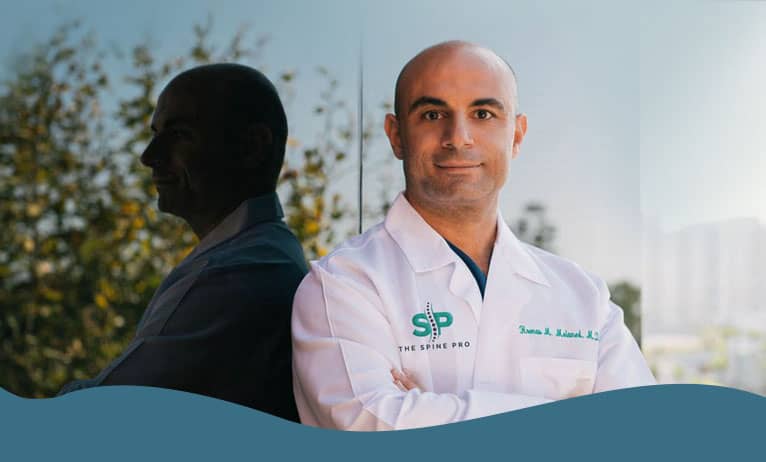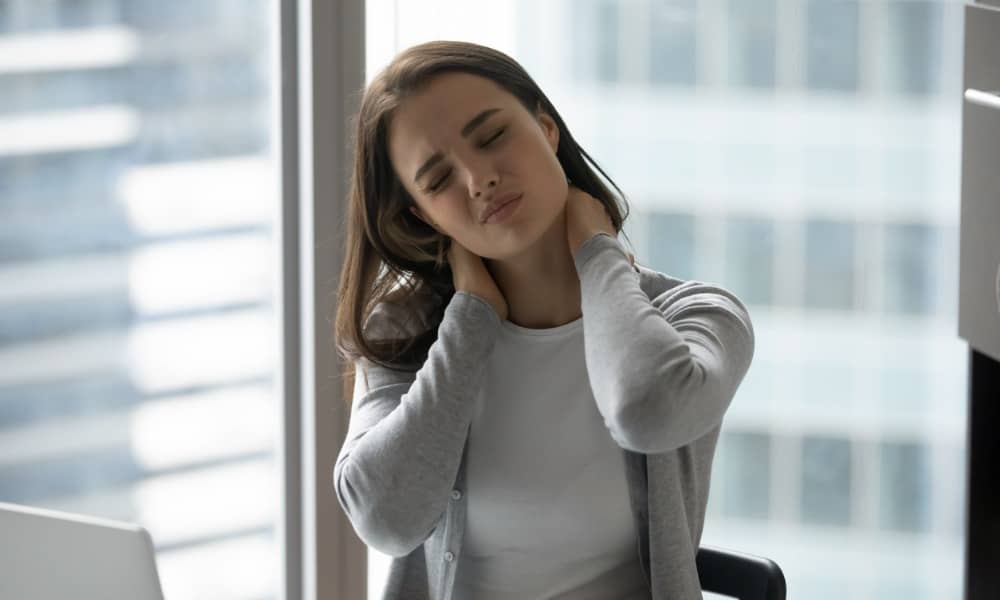Is Osteoarthritis Causing Your Back Pain?
Osteoarthritis is the most common form of arthritis and affects millions of people worldwide. It occurs when the protective cartilage that cushions the ends of the bones wears down over time. For people over the age of 40, the spine is a prime target for this common joint condition, causing a growing problem with lower back pain.
How does osteoarthritis of the spine cause back pain?
The spine consists of 33 vertebrae. However, the main cartilage where arthritis can develop is between 24 of the vertebres only. Between each vertebrae are cushion-like pads called discs, which act as shock absorbers in the spine and allow for mobility and flexibility. There is also cartilage in the facet joints, which are part of each vertebrae on the left and the right side just like a knee or hip joint that can be affected by arthritis. As we age, the discs cushioning vertebrae and the facet joints in the lumbar spine can break down, adding pressure to these joints while damaging cartilage.
Common symptoms of osteoarthritis of the spine include:
- Back and/or Neck stiffness
- Pain in the neck or back
- Weakness or numbness in the legs or arms
How can I relieve my back and/or neck pain?
In most cases, treatment of spinal osteoarthritis is geared toward relieving painful symptoms and improving function. Exercise and physical activity can help encourage a healthy spine:
- Increase flexibility
- Improve attitude and mood
- Strengthen the heart
- Improve blood flow
- Make it easier to do daily tasks
- Pay Attention to your work ergonomics. For example, sitting for a prolonged period can be very unhealthy for the spine. It’s best to use a stand up desk, but it is also important to not stand in one position continuously. A lot of people tend to slouch when sitting, loading their lower back and abnormally curving their neck. This can cause undue pressure in the lower back and the neck and lead to gradual arthritis.
- Make sure you’re sleeping with your neck and your lower back in a neutral position. Nutrition is absolutely critical. It is very important to stick with an anti-inflammatory diet and avoid foods that cause inflammation, such as processed food, processed sugar, most dairy, most grain, barley, and rye oats.
Individuals can also focus on certain exercises that help relieve their back pain, such as:
Strengthening exercises
Strengthening exercises can help alleviate and prevent lower back pain. As the muscles become stronger, they can help support the joints. These exercises work through resistance with the use of weights or resistance bands. The absolute key here is making sure you have the proper form. Avoid lifting too many heavy weights and instead rely on body-weight exercises. Hooman Melamed recommends that if you can do any weight, minimum 12 reps in a perfect form is best as it is very hard to hurt yourself. Exercises such as squats and deadlifts, if done properly, can be very helpful. I recommend doing these exercises at the end of your workout with a minimum of 12 reps. When you’re squatting down, do not go past 60 to 70 degrees of knee flexion. When you’re deadlifting, make sure the weight is touching your thigh and your shin throughout the entire movement with your back completely locked and neutral.
Aerobic exercises
Aerobic exercises can help relieve back pain by decreasing stiffness and improving blood flow to the spinal structures. Water aerobics and swimming are great aerobic exercises if you get backaches.
Range-of-motion exercises
Range-of-motion exercises increase the body’s flexibility which helps relieve back stiffness such as pilates and yoga.
You should always speak with your healthcare provider before beginning a new exercise routine. If you are unsure how to perform an exercise without hurting yourself, always seek professional guidance.
Back pain is a common condition that can affect anyone at any age. While most cases are acute, not knowing the exact cause of your pain can be troublesome. For chronic back pain that does not subside after three months with conservative treatment, contact The Spine Pro, Dr. Hooman Melamed at 424-21-SPINE.






